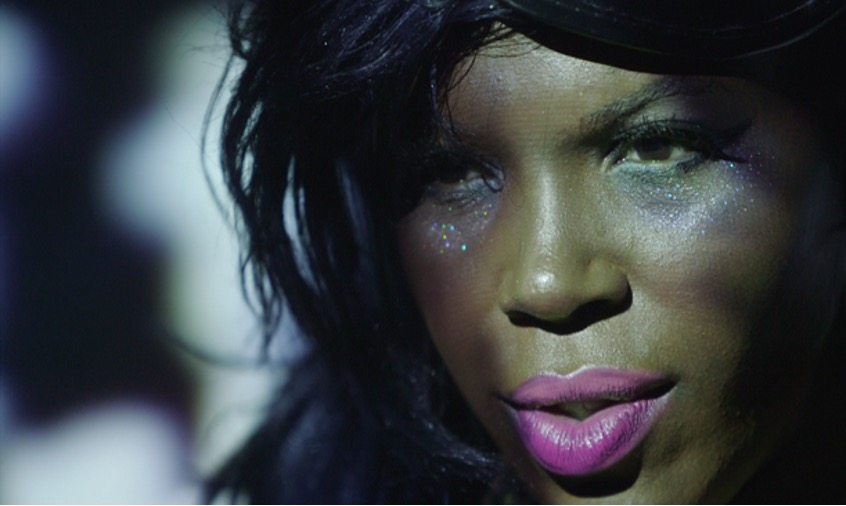Andrew Robbins (University of Oregon) offers a list of short films made by transgender, nonbinary, intersex, and gender non-conforming (henceforth trans*) artists that defy traditional tropes of trans* people as spectacles, villains, and victims.
Behind the Camera and Onscreen: Trans* Lives Reimagined
The recent documentary, Disclosure (Sam Feder, 2020), which premiered at the Sundance Film Festival and was acquired by Netflix, takes an in-depth look at Hollywood’s historical representation of trans* people as well as the paradox of increased visibility that has coincided with a rise in systemic violence against trans* people of color. While this documentary will likely provide an entry point for broader audiences to learn about trans* representation in Hollywood, it is equally important to highlight trans* filmmakers and artists who have created their own cultures of production and exhibition outside of mainstream media. The majority of trans*-made audiovisual media screens at a limited number of trans* or queer film festivals and then vanishes without distribution or archival preservation.
This playlist introduces a small collection of trans*-made short films that depict trans* people finding and rewriting their own histories, envisioning their own representation, and living full lives as activists and artists fighting for coalitional issues of justice. This collection includes music video, experimental, narrative, and documentary forms, offering a range of themes and aesthetically innovative approaches. Some of these films are also part of the “TransFormation, TransAction” Guest Programme at the 2020 Aesthetica Short Film Festival, curated by Andrew Robbins and Laura Horak of the Transgender Media Portal, a collaborative database and website that includes resources such as a list of trans artists seeking support for their work, active transgender film festivals, bibliographies of academic writing on trans cinema and media, sample syllabi for classes that include trans cinema, a list of Black, Indigenous, and person-of-color (POC) trans filmmakers, and a list of sister projects.
War Call (Mizz June, US, 2018, 4 min)
This debut music video began production in the middle of the 2016 election. Featuring archival footage of Black and brown trans activists and pushing against the trap of respectability politics, the lyrics and visuals pay homage to a long lineage of trans activist elders while issuing a rallying cry for the justice and liberation of all trans bodies across time and space.
Link: https://www.youtube.com/watch?v=lrs585Wwguc
RUN! A Mythography (Malic Amalya, US, 2019, 11 min)
This film challenges the myopic notion that trans cinema is confined to the topic of gender and identity. Shot at sites of nuclear development, detonation, industry, tourism, and activism, RUN! examines ideologies of war as structuring devices. Beginning production in 2017, during Trump’s ongoing and escalating threat of nuclear war and shortly after he announced his transgender military ban, RUN! diverges from mainstream, rights-based struggles for the inclusion of trans bodies in the military, and instead offers a radical queer critique of US imperialism and militarization, environmental destruction, and human exploitation.
The film is available here: https://www.malicamalya.com/run
Ponyboi (River Gallo, US, 2019, 19 min)

Ponyboi is a landmark narrative film created by and starring River Gallo (they/them), a Salvadoran-American filmmaker, actor, writer, model and intersex activist. Produced by Stephen Fry and Emma Thompson, Ponyboi premiered at the 2019 Tribeca Film Festival. The film explores the protagonist’s overlapping experiences of race, class, and gender oppression that has led them to survival sex work. Reenvisioning this precarity through the eyes of the protagonist, the film explores the politics of desire, self-empowerment, and futurity.
Link: https://www.youtube.com/watch?v=ELcdw8LbGpM
Framing Agnes (Chase Joynt, Canada, 2018, 20 min)
In the late 1950s, a woman named Agnes approached the UCLA Medical Center seeking sex reassignment surgery. Her case study – long considered to be singular – would go on to define the medical understanding of transgender people well into the 1990s. Much like Freud’s classic studies of Dora and the Wolf Man, Agnes’ story endures in popular culture and continues to capture the imagination of scholars and activists alike. In 2014, filmmaker Chase Joynt and sociologist Kristen Schilt began searching for Agnes in the archives. Framing Agnes captures their discovery of never-before-seen case studies of gender non-conforming people who had been Agnes’ contemporaries. These stories change the historical record, disrupting the notion that Agnes was exceptional at the time. The film puts the life stories of Georgia, Denny and Henry in conversation with Agnes to complicate the medical definition of sex and gender in the midcentury. With Agnes and her contemporaries as contextual foundation, Framing Agnes allows contemporary actors to reimagine their place in the making of trans history.
A Trans With a Movie Camera (Francis Damian Arapia, US, 2018, 13 min)
By seizing the modes of production, this cine-essay challenges the dominance of narrative and documentary forms that myopically depict trans bodies and lives. Using experimental and collaborative methods between the director and other trans women, this film offers counter-narratives to the spectacularization of trans feminine bodies by giving the subjects screen space to explore a range of affects and experiences including rage, existential rumination, eroticism, joy, play, and mundanity.
Link: https://vimeo.com/270542519
***
Andrew Robbins is doctoral candidate in Media Studies at the University of Oregon and researches trans-punk film production and exhibition. He is a film festival programmer and co-founder of Rewire Film Festival.
